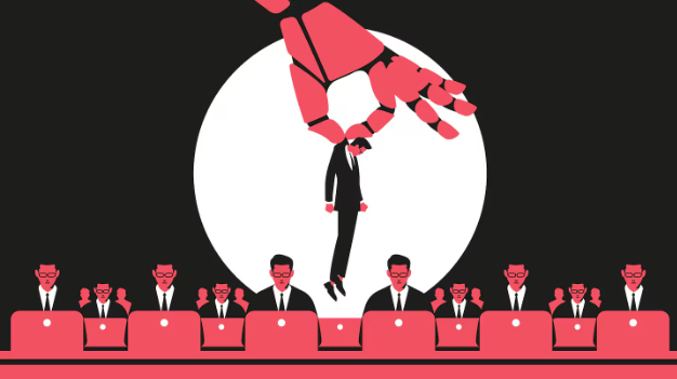
Daron Acemoglu wants to make clear right away that he has nothing against artificial intelligence.
He gets the potential.
“I’m not an AI pessimist,” he declares seconds into an interview.
What makes Acemoglu, a renowned professor at Massachusetts Institute of Technology, come off as a doomsayer locked in on the mounting economic and financial perils ahead, is the unrelenting hype around the technology and the way it’s fueling an investment boom and furious tech stock rally.
As promising as AI may be, there’s little chance it will live up to that hype, Acemoglu says.
By his calculation, only a small per cent of all jobs - a mere 5% - is ripe to be taken over, or at least heavily aided, by AI over the next decade. Good news for workers, true, but very bad for the companies sinking billions into the technology expecting it to drive a surge in productivity.
“A lot of money is going to get wasted,” says Acemoglu. “You’re not going to get an economic revolution out of that 5%.”
Acemoglu has become one of the louder, and more high-profile, voices warning that the AI frenzy on Wall St and in C-suites across America has gone too far. An Institute Professor, the highest title for faculty at MIT, Acemoglu first made a name for himself beyond academic circles a decade ago when he co-authored Why Nations Fail, a New York Times bestselling book. AI, and the advent of new technologies, more broadly, have figured prominently in his economics work for years.
The bulls argue that AI will allow businesses to automate a big chunk of work tasks and spark a new era of medical and scientific breakthroughs as the technology keeps improving. Jensen Huang, chief executive of Nvidia, a company whose very name has become synonymous with the AI boom, has projected that rising demand for the technology’s services from a broader range of companies and governments will require as much $1 trillion in spending to upgrade data centre equipment in coming years.
Scepticism about these sorts of claims has started to mount – in part because investments in AI have driven up costs much faster than revenue at companies like Microsoft and Amazon – but most investors remain willing to pay lofty premiums for stocks poised to ride the AI wave.
Acemoglu envisions three ways the AI story could play out in the coming years.
- The first - and by far most benign - scenario calls for the hype to slowly cool and investments in “modest” uses of the technology to take hold.
- In the second scenario, the frenzy builds for another year or so, leading to a tech stock crash that leaves investors, executives and students disillusioned with the technology. “AI spring followed by AI winter,” he calls this one.
- The third - and scariest - scenario is that the mania goes unchecked for years, leading companies to cut scores of jobs and pump hundreds of billions of dollars into AI “without understanding what they’re going to do with it,” only to be left scrambling to try to rehire workers when the technology doesn’t pan out. “Now there are widespread negative outcomes for the whole economy.”
The most likely? He figures it’s some combination of the second and third scenarios. Inside C-suites (executive level managers), there’s just too much fear of missing out on the AI boom to envision the hype machine slowing down any time soon, he says, and “when the hype gets intensified, the fall is unlikely to be soft”.
Take your Radio, Podcasts and Music with you









